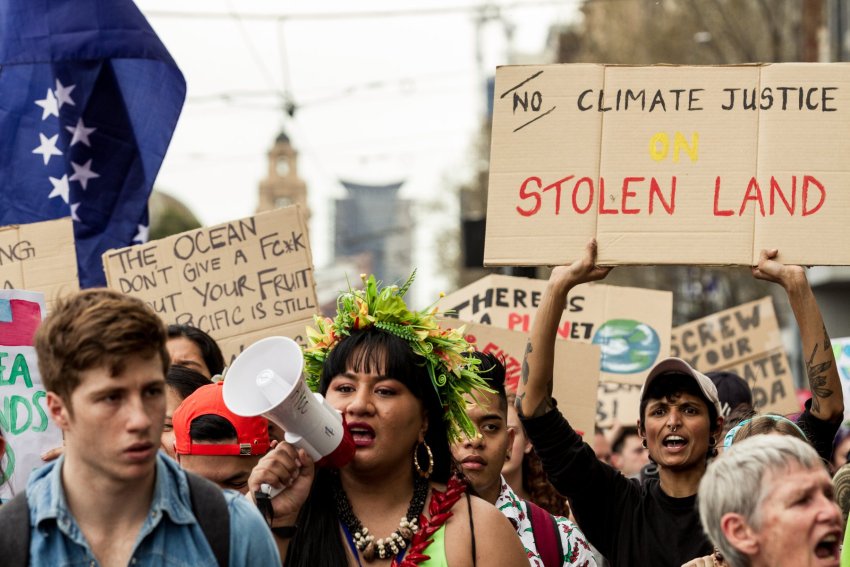
There is currently a resurgence in climate activism across the world. With the recent global Climate Strike and rise of protest groups such as Extinction Rebellion, questions are being posed within the movement of how best to deal with the climate crisis and fight for a just future.
There is an increasing recognition that the climate crisis has global implications. By its nature, the crisis will impact most dramatically on those who contributed the least to it, in particular indigenous and working-class communities in the Global South.
It is often argued that the global nature of the climate crisis means we are all in this together. But we live in a world where less than 1% of the population own nearly half of the world’s wealth and the bottom 56% have only 1.8%.
Moreover, it is the wealthiest 10% of the global population who are responsible for more than 50% of global emissions.
This suggests that there is a section of society that clearly must shoulder most of the blame for the crisis.
The reality is that Global South countries will be worst hit by the climate crisis, while economically powerful nations will be the least affected — or at least better equipped to adapt — despite the fact they are the biggest polluters.
Given this, Global South countries are being forced into positions where they must take out loans, usually from institutions such as the World Bank and the International Monetary Fund (IMF), to address the damage being inflicted by the climate crisis.
Yet, they often receive little more than small change from these institutions and are being condemned to a cycle of international debt repayments that they will never finish paying off.
For example, Mozambique, the world’s sixth-poorest country, was forced to borrow $117 million from the IMF in April to help rebuild parts of the country after being hit by a devastating and freak cyclone.
By comparison, countries such as the United States and Australia — most of whose wealth has been created through exploiting the resources of the Global South, climate vandalism and dispossession of indigenous communities — are often well-equipped to deal with such climate-related disasters.
These events, and the global disparities in wealth between countries, have reinforced calls by climate justice campaigners for the Global North to take responsibility and compensate the Global South for the climate debt they have built up.
Rich and powerful nations must ensure that the most vulnerable countries are sufficiently resourced to adapt to global warming and rising sea levels. Any solution that does not ensure the equitable distribution of the Earth’s limited capacity to absorb greenhouse gases is doomed to fail.
Discussions on wealth disparities among nation-states also raise questions about the contribution of military forces to the climate crisis.
Weapons build-ups and endless wars created by imperialist superpowers, especially the US, are major contributors to greenhouse emissions. A recent study found that the US Department of Defence has a larger annual carbon footprint than most countries.
The issue of climate refugees is also an important one the movement must take up.
Reports suggest that over the next 40 years, more than 150 million people will be forced to leave their homes due to droughts, extreme weather events and rising sea levels. This is just another example of how the world’s most vulnerable are impacted by a climate crisis they did little to create.
At the same time, the response in the Global North has been to build walls and implement harsh border regimes to keep out people seeking asylum.
Since the climate crisis will not impact everyone equally, climate campaigners must take up issues of oppression and inequality and be part of struggles that challenge those divisions. Fighting for climate justice requires taking up the issues of economic inequality and racial, gender and sexual oppression.
Given Australia’s colonial history, this means the climate movement here must take up the demands of First Nations communities and support their struggles for decolonisation and sovereignty.
To tackle the climate crisis, we need a mass movement that takes on the rich and powerful corporations responsible for this crisis. Such a movement should not only take into account the interests of the marginalised and vulnerable but place those at the forefront of its campaigning for climate justice.
[Jacob Andrewartha is a climate campaigner and a member of the Socialist Alliance.]